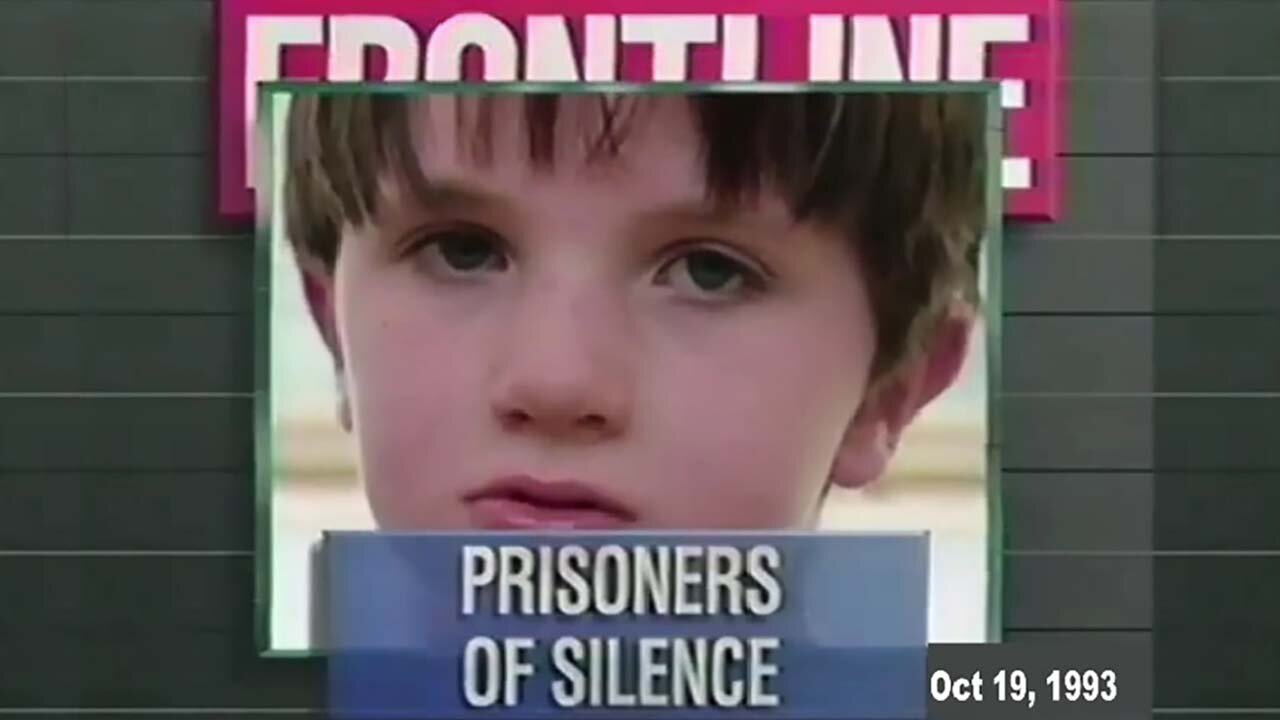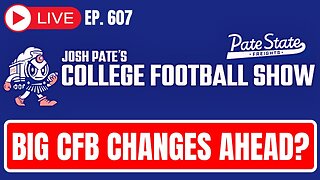Premium Only Content

Prisoner of Silence - investigation into Facilitated Communication (FC), & nonverbal autistic people
Many families with autistic and non-verbal children have faced devastating consequences from relying on Facilitated Communication (FC). This includes false allegations of abuse and sexual abuse, often influenced by facilitators rather than reflecting the child's true thoughts. Such situations can tear families apart, lead to financial devastation, and raise serious ethical concerns about this unproven method. Alarmingly, there have been cases where allegations stemming from FC resulted in severe legal repercussions for families, based on messages that may not have originated from the children at all. This highlights the significant risks of depending on a method that lacks credible support.
The Frontline documentary "Prisoners of Silence," which aired in 1993, sheds light on these troubling realities. Initially promoted by Dr. Douglas Biklen as a revolutionary technique, FC quickly gained traction among desperate families seeking to communicate with their non-verbal autistic children. However, this initial hope has been overshadowed by growing skepticism and ethical concerns.
In the documentary, researchers conducted tests involving FC with children and found no evidence of independent communication. Critics, such as Dr. Howard Shane, emphasize that facilitators often unknowingly control the messages being typed, raising serious doubts about the authenticity of the communication. The scientific consensus is clear: FC does not reliably provide independent expression from autistic individuals, prompting significant questions for parents who believe they are witnessing genuine communication.
Parents should be wary of the emotional allure and false promises associated with Facilitated Communication. While it may seem like a way to connect with their non-verbal autistic child, the reality is far more concerning. Numerous studies have shown that FC can lead to serious misconceptions about a child’s true abilities, placing them in potentially harmful situations.
Despite the lack of solid evidence, many parents and advocates continue to defend FC, often citing individual success stories as validation. However, this reliance on anecdotal evidence can perpetuate harmful misconceptions about the capabilities of non-verbal autistic individuals. It's crucial for parents to prioritize their children's genuine needs and development rather than risking their well-being with unproven techniques like FC.
Moreover, parents must reflect on how they spend their child's precious years. Why invest time in a method unlikely to yield real results? Instead, focusing on genuine teaching strategies, even if progress is slow, can empower children to communicate their needs and wants more effectively. Life is short, and it’s vital to confront these challenges with honesty, prioritizing approaches that truly support children's development. That’s what real love and support look like, along with a commitment to presume competence.
For more information go to https://www.altteaching.org
#AlternativeTeachingStrategyCenter
Critiques of Facilitated Communication
https://www.facilitatedcommunication.org/critiques-of-fc
List of abuse allegations made through facilitated communication
https://en.wikipedia.org/wiki/List_of_abuse_allegations_made_through_facilitated_communication
The ABC documentary "From Miracles to Nightmares" aired in 1994.
Disclaimer: This content is intended solely for educational and awareness purposes. We unequivocally denounce any form of violence, hate, harassment, or bullying. This page does not endorse or promote dangerous acts, nor any form of violence, nor should it be considered legal advice. In accordance with section 107 of the Copyright Act of 1976, this content is made available for “fair use” purposes, including criticism, comment, news reporting, teaching, scholarship, education, and research.
#facilitatedcommunication #fc #Spelling2Communicate #s2c #rpm #RapidPromptingMethod
-
 LIVE
LIVE
Precision Rifle Network
1 day agoS4E4 Guns & Grub - You Can't Handle The Truth!
352 watching -
 DVR
DVR
Flyover Conservatives
21 hours agoSick, Tired, & Foggy? The TRUTH About What’s Living in Your Gut! - Dr. Jason Dean | FOC Show
16.6K1 -
 34:24
34:24
Kimberly Guilfoyle
8 hours agoFaith, Fairness, and a Better Future: Live w/ Joy Pullmann & Elizabeth Mitchell | Ep.194
124K30 -
 1:12:20
1:12:20
Josh Pate's College Football Show
6 hours ago $0.28 earnedBig CFB Changes Coming | DeBoer Fixing Alabama | Signing Day Reaction | OhioSt vs Michigan Shift
39.8K2 -
 59:39
59:39
The StoneZONE with Roger Stone
3 hours agoEXCLUSIVE: James O'Keefe Talks to Roger Stone About Dropped Charges Against Him | The StoneZONE
31.6K2 -
 1:48:10
1:48:10
megimu32
3 hours agoON THE SUBJECT: Comedian LOSES It At Heckler!
19.4K1 -
 1:17:13
1:17:13
Redacted News
7 hours agoTRUMP IS BURNING IT ALL DOWN AND DEMOCRATS WANT HIM IMPEACHED AGAIN, USAID ROT GOES DEEP | Redacted
167K357 -
 52:23
52:23
Candace Show Podcast
7 hours agoUPDATE! Taylor Swift Goes Full Dragon Against Blake Lively | Candace Ep 144
143K200 -
 LIVE
LIVE
VOPUSARADIO
23 hours agoPOLITI-SHOCK! KILL THE DEEP STATE!! PLUS: 3 SPECIAL GUESTS!
93 watching -
 54:41
54:41
LFA TV
1 day agoCorruption Like You Never Imagined | TRUMPET DAILY 2.6.25 7pm
41.8K14